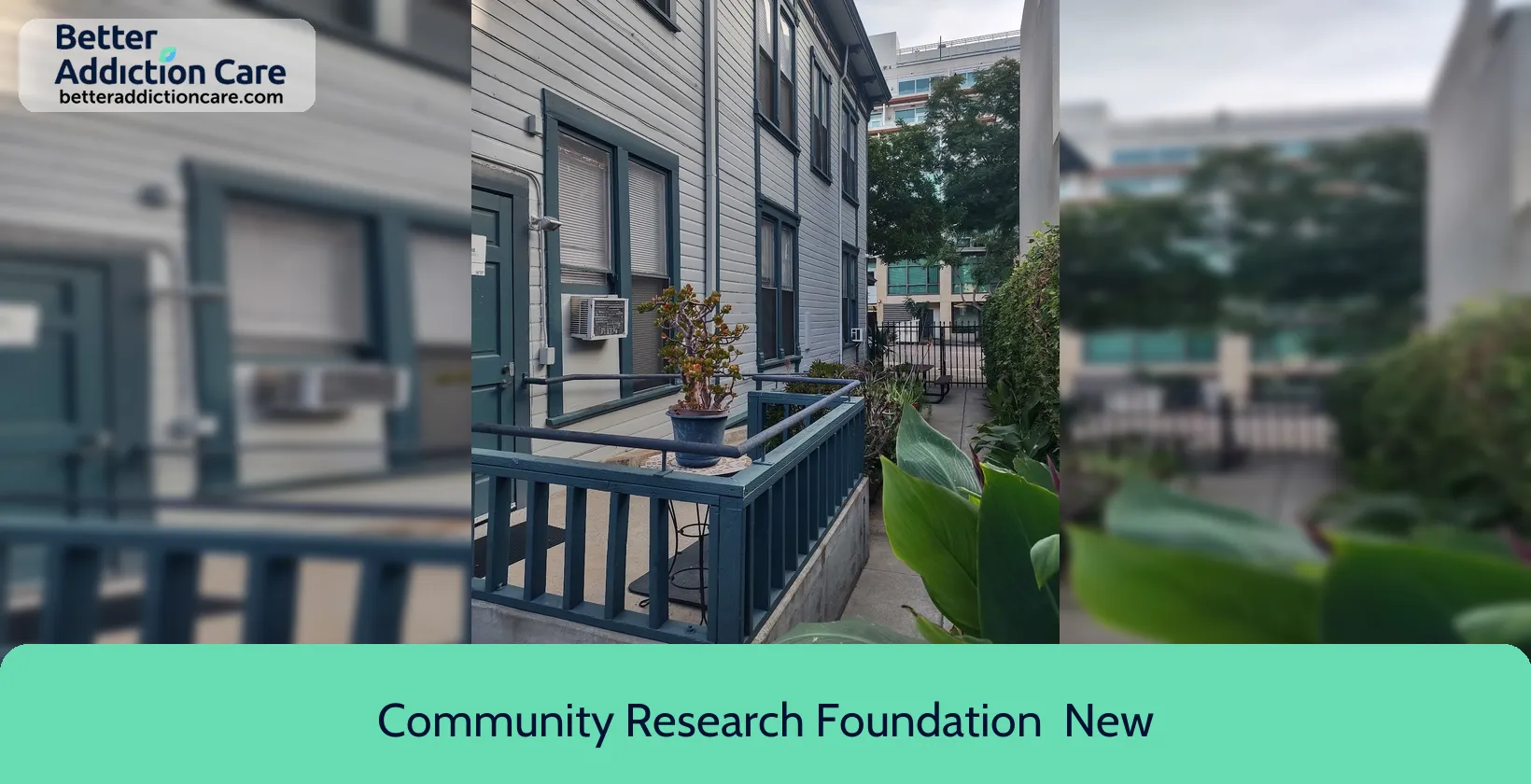Community Research Foundation

Overview
Community Research Foundation is a mental health treatment center for people seeking treatment near San Diego County. As part of their treatment modalities for recovery, Community Research Foundation provides individual psychotherapy, group counseling, and cognitive behavioral therapy during treatment. Community Research Foundation is located in El Cajon, California, accepting cash or self-payment for treatment.
Community Research Foundation at a Glance
Payment Options
- Cash or self-payment
- Private health insurance
Assessments
- Comprehensive mental health assessment
Age Groups
- Adults
- Seniors
- Young adults
Operation
- Private for-profit organization
Highlights About Community Research Foundation
6.62/10
With an overall rating of 6.62/10, this facility has following balanced range of services. Alcohol Rehabilitation: 8.00/10, Drug Rehab and Detox: 6.00/10, Insurance and Payments: 6.00/10, Treatment Options: 6.49/10.-
Alcohol Rehabilitation 8.00
-
Treatment Options 6.49
-
Drug Rehab and Detox 6.00
-
Insurance and Payments 6.00
Treatment At Community Research Foundation
Treatment Conditions
- Mental health treatment
Care Levels
- Hospital inpatient treatment
Treatment Modalities
- Individual psychotherapy
- Group counseling
- Cognitive Behavioral Therapy
- Dialectical Behavior Therapy
- Trauma-related counseling
Ancillary Services
Special Programs
- Clients who have experienced trauma
- Persons 18 and older with serious mental illness (SMI)

Additional Locations
Contact Information
Read our Most Recent Article About Drug Addiction
DISCLAIMER: The facility name, logo and brand are the property and registered trademarks of Community Research Foundation, and are being used for identification and informational purposes only. Use of these names, logos and brands shall not imply endorsement. BetterAddictionCare.com is not affiliated with or sponsored by Community Research Foundation.










